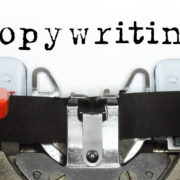Going it alone: Five differences between ad agency copywriters and freelance copywriters.
Table of Contents
Ad agency copywriters and freelance copywriters do much the same job but enjoy very different lifestyles.
So, which is best? Here are five big differences… but tell us what you think in the comments box below.
1. Work security
Probably the biggest difference between the two types of copywriters is in the work security of the one and the unpredictable nature of the other. Working at an agency brings a monthly salary, a company pension, maybe even a car. All agencies go through boom and bust periods of work but if you’re an employee that’s not really your concern because you’ll get paid whatever the amount of work coming in to the company. And even if the worst comes to the worst there’s the prospect of at least a bit of redundancy money if you were to be let go.
It’s all rather more precarious for the freelancer. The money you earn each month cannot be guaranteed. It depends on a lot of things including how much effort you put into finding work (either from existing or new clients) and how much work those clients have to offer. You have to plan for lean times and make the most of busy times. It’s the same with pensions. No one else is going to arrange this for you so – as with everything else in the freelancer’s life – it’s up to you to arrange it. One last thing: holidays.
The ad agency copywriter enjoys guaranteed paid holidays every year which he or she can take more or less whenever they want. Not so for the freelancer. Taking a holiday is always a bit of a gamble because Sod’s Law says that some peach of a job will come in while you’re away and you’ll miss the chance to do it. What’s more, while you’re sunning yourself in Spain (or more likely camping in Cork) you’ll have no income coming in for the time you’re away. It makes you wonder sometimes why people freelance at all!
2. Work style
A huge difference between the ad agency copywriter and the freelancer is how they work. At an ad agency the writer will invariably work with an art director to form a creative team. ‘Team’ is the operative word here because very often the two creatives will get the most out of each other by pushing ideas just that little bit further. It’s important that they get on because they spend a heck of a lot of time together. They also need to know what makes the other one tick and, rather like a marriage, know when to push and when back off. The freelancer’s work life is very very different. Although they may be called in to an ad agency to work with an art director in an emergency, generally they work at home, alone. For most this is one of the great attractions of the job. Not so much the absence of an art director but the freedom to be able to work whenever and wherever they fancy.
The freelancer’s work life is very very different. Although they may be called in to an ad agency to work with an art director in an emergency, generally they work at home, alone. For most this is one of the great attractions of the job.
A lot of the freelance copywriter’s work is also ‘long copy’ – brochures or articles and the like – which take quite a bit of time and concentration to get right so being alone in one’s den is the perfect environment. Many writers also work best at night for some reason which is not an option that’s really open to ad agency staff who need to squeeze their creativity into daylight hours.
3. Work variety
A general rule of thumb is that the ad agency copywriter is going to enjoy more opportunities to work on nicer jobs. Big companies with large budgets will always tend to work with ad agencies rather than with individuals. Having said that, an ex-ad agency copywriter who has set him/herself up as a freelancer later in their career may have built up a good relationship with a particular client and continue to get work from them (the incumbent ad agency will generally try and stop this happening though).
There’s also a strict hierarchy in ad agencies which means that as a relatively junior copywriter you’re not going to get the pick of the work available. As you progress the opportunities to work on potentially award winning work will increase. That’s not to say that the freelancer won’t get any chances to win awards. They’ll just be for different kinds of clients, that’s all. Smaller, niche clients may well prefer to work with more independently minded (and possibly cheaper) freelancers and these type of clients often give a copywriter much more creative freedom to do what they really want. The freelancer will also tend to accept work that many agencies would turn their nose up at (for instance ad hoc work for a local business). For the freelancer it’s bread and butter while for the personnel-heavy agency it simply may not be worth their while to get a suit and a creative team involved.
4. Hours
Which would you prefer: nine to five or twenty four seven?
Well, maybe that’s a little extreme but, in principle, the ad agency copywriter is contracted to work five days a week during office hours while the freelancer is – by their own choice – more or less on call whenever and wherever. They can’t afford not to be. With only one pair of hands to rattle out the copy on the keyboard they’ll have to work all the hours god sends at busy times to get it all done. Conversely they need to learn to make the most of the quiet times and relax rather than worrying where the next penny is going to come from. The ad agency copywriter, of course, is not a true nine-to-fiver either. Most copywriters will tell you that they never stop working and that they’ll get ideas at any time of the day or that they’re constantly mulling over a certain bit of copy in their heads. And, when there’s a deadline looming then there’s no rest for anybody. All-nighters are a common feature of ad agency life and one of the few things that the freelancer has in common with his or her full time compatriots. As for overtime, just forget it!
5. Salary
There are so many variables here such as location, experience, specialisms and (above all) track record and it varies drastically depending on what country you’re in. The best advice is to look through Campaign or job websites to see the salaries on offer, or talk to people in the industry.
Choice? What choice?
Looking at stability, variety, work hours and salary it seems like the lot of the ad agency copywriter is generally the more rosy one. But ask any freelance copywriter why they do it and nine out of ten will tell you it’s the sense of freedom to work the way they want that makes the self-employed route so attractive. The idea that it’s a choice, however, is a little misleading. It would be virtually impossible to set yourself up as a freelancer without any ad agency experience so, if you’re just starting out on your career that’s the place to begin. Build up your portfolio. Get some awards under your belt. After that, it’s entirely up to you.








Ah, the grass is always greener! I’ve had a successful freelance career for over four years now, but lately I’ve had thoughts about how great it would be to work at an agency – the glamour, the bigger projects and higher profile clients, the martini lunches. Thanks for putting those thoughts to rest! I’ll stick to my seven to ten weeks of traveling every year, which is the main reason I’m a freelancer.
Like Steve Roller said…
I think for some creatives, ad agency experience at the beginning of their career is not always the best route…depending on who you work for of course. I think from a creative perspective some agencies can actually stifle a person’s ideas and ‘keep them down’. Just sayin’ :-)